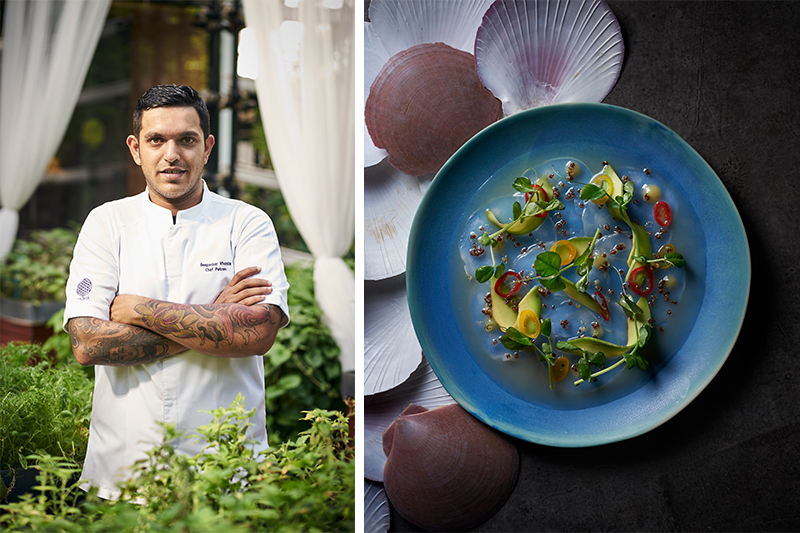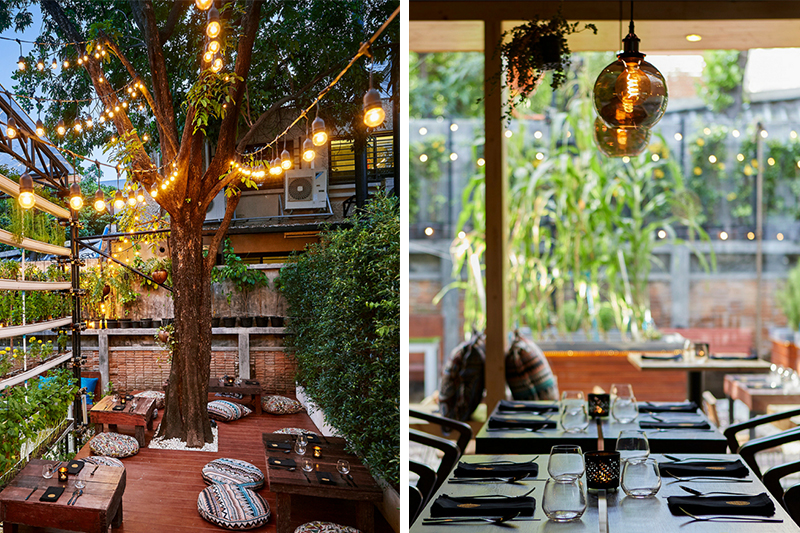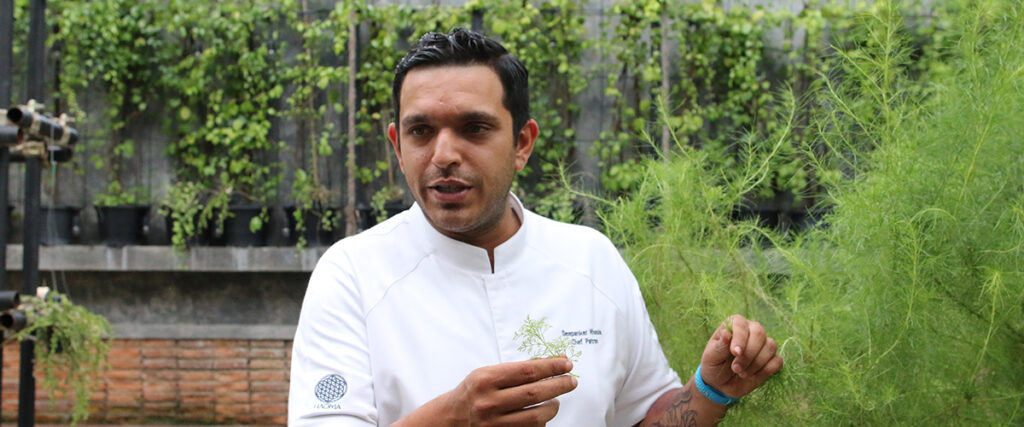Leading the sustainability movement in Thailand’s food industry is one of Bangkok’s top Chefs, Deepankar Khosla. We sat down with him to understand how his new restaurant Haoma is turning trash into top table fare.
Ever wonder what happens to restaurant and food store leftovers? Ever thought about where all our uneaten food ends up? As a chef working since 2009, Deepanker Kosla knows the answer to these questions. And now, based in Bangkok, a city where, on average, each Thai person throws away more than a kilo of rubbish every single day, more than 60% of which is food, the young chef is attempting to address them fully in his new venture Haoma, a zero waste, farm to table restaurant that’s taking Bangkok’s food waste and serving it up as fine dining.

It was a stint working at The Luxury Collection in India that opened Deepanker’s eyes to the possibilities of finding a solution to the major and growing issue of food waste. “After seeing how The Luxury Collection incorporates waste reduction into their cooking, I was inspired to bring the same concept whenever I got to do something of my own,” he explains.
That chance came when he opened Haoma in Bangkok last year along with his close friend Tarun Bhatia, winner of Southeast Asia’s San Pellegrino Young Chef Award 2016. “I was sick of cooking Indian food and decided to challenge myself with a different cuisine. So, I quit my job, bought some books and conceptualised and finalised my vision in less than eleven months.” That vision was and is of a progressive, urban-farm to table restaurant that adopts innovative practices to deliver food that’s often made from waste. “The first thing you drink and the last thing you eat here are all made of scrap” explains Deepankar. “We grow what we cook, we cook what we love.”

“When you are working for a well-established restaurant or hotel, the term sustainability gets thrown around very casually”, says Deepankar. At Haoma, however, sustainability is anything but a sideshow. Hailing from a farming background, he has translated what he learnt from his childhood to now practice pisciculture and aquaponics right in the restaurant’s backyard.
The team at Haoma reuse and recycle whatever they can at all points along the chain. For example, their rainwater recycling system nurtures the plants in their backyard and the fish in their husbandry are fed discarded waste from their kitchen, especially egg whites which in turn helps yield fish meat that is high in protein. They also take care to source seasonally, waiting to take direction from farmers in provinces like Chiang Mai as to what they should be serving, rather than placing orders for items to suit their menu. “Here at Haoma, we have changed the entire process of menu making,” explains Deepankar. “No matter how delicious a dish sounds or how good it looks in our sketches, the key aspect we take into consideration is how are we are translating the essence of nature, which in return is the essence of Haoma, into each dish.”
And then there is the rubbish. In collaboration with Thai Scholars of Sustenance(SOS), a non-profit organization, Deepankar and his team go around collecting perfectly edible but visually unappealing produce that has not been used in more commercial settings. Discarded food such as disfigured fruit, vegetable peel and eggshells are then all incorporated into Haoma’s much-acclaimed menu.
This reinvention of waste also extends to their drinks. Their new “Trash Tiki” cocktail menu was launched in May 2018 and developed in collaboration with 22-year-old Sasha Wijidessa of Operation Dagger in Singapore, one of the most well-honed bars in the business who was recently ordained #19 on The World’s Best Bars award list. All the drinks on it are mixed with fermentations, probiotic techniques and fresh products plucked from Haoma’s urban farm.
The hard work is paying off – Haoma is gaining both fans and rave reviews. Deepankar believes this is, in part, thanks to a growing pull in his direction. “People are becoming more aware of what they’re consuming,” he explains. And, in him, they’ve met a chef absolutely dedicated to give them something they can feel all good about.
Related Articles
A Foodie’s Guide to the Best Street Food in Bangkok
Preserving Bangkok’s Street Food Scene
Vanishing Bangkok: Photographer Ben Davies Documents Bangkok’s Cultural Heritage




